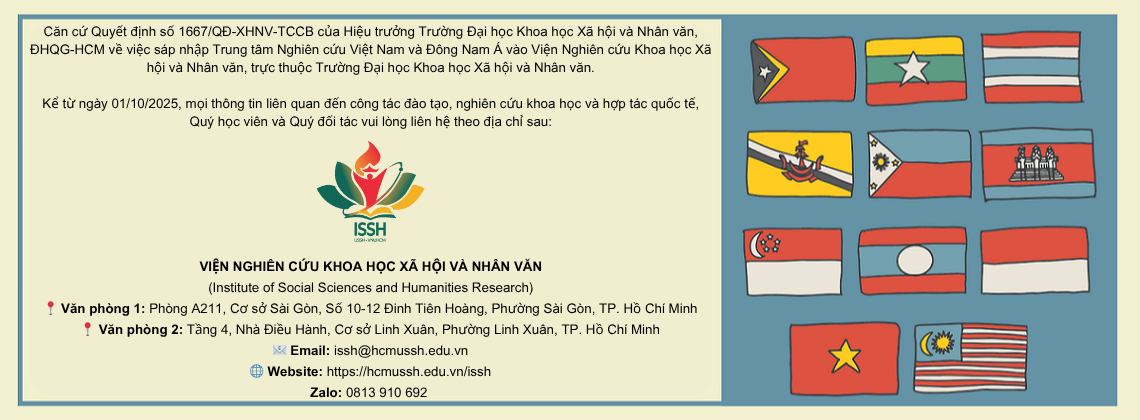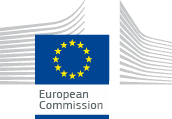INTERNATIONAL SEMINAR - ASEAN EMPLOYMENT OUTLOOK: OPPORTUNITIES AND CHALLENGES
, 27/11/2024 16:11With extensive development and integration in the region, ASEAN countries are opening up many employment, study, and cultural exchange opportunities for Vietnamese students. This information is the main focus of the international seminar "ASEAN Employment Outlook: Opportunities and Challenges," organized by the Center for Entrepreneurship and Career Orientation and the Center for Vietnam and Southeast Asian Studies of the University of Social Sciences and Humanities on 26.11.2024.

Delegates attending the seminar
Speaking at the opening remarks, Dr. Le Hoang Dung - Vice Rector of the University, stated that in the context of the fluctuating labor market, the seminar aimed to share information on adaptability, labor, education, and economic policies to create sustainable employment opportunities and improve the competitiveness of enterprises in the ASEAN region. At the same time, the event also aimed to enhance the accessibility and forecasting of labor market information, promote the connection between education and business, and create conditions for career mobility and development for employees. More importantly, the seminar will expand cooperation among ASEAN member organizations and countries, sharing effective models and practical experiences in developing human resources in a constantly changing working world. Dr. Le Hoang Dung believes that the ideas, solutions, and connections formed at the seminar will generate new momentum that brings positive change, not only to the regional labor market but also to enhance cohesion among ASEAN countries.
.jpg)
Dr. Le Hoang Dung's Opening Remarks
Assoc. Prof. Dr. Phan Thi Hong Xuan, Director of the Center for Vietnam and Southeast Asian Studies, mentioned that there are currently 8 professionals that facilitate the movement of workers within ASEAN, including engineer, architect, accountant, doctor, dentist, nurse, surveyor and tourism. As a result, social sciences and humanities students have numerous job opportunities in the ASEAN labor market. Specifically, students in urban studies can work in fields such as architecture. Students in sociology and economics can pursue careers in surveyor, while students in social work and psychology have ample opportunities in nursing and health care. Tourism students specializing in hospitality, travel, and food and beverage services have promising career prospects in the ASEAN tourism sector.

Assoc. Prof. Dr. Phan Thi Hong Xuan presented the presentation "Opportunities and Challenges for Students of Social Sciences and Humanities in the Context of the Realization of the ASEAN Community."
Also in the presentation, Assoc. Prof. Dr. Phan Thi Hong Xuan emphasized that learning the languages of ASEAN countries not only expands career opportunities but also provides Vietnamese students with a deeper understanding of the culture and society of the region. With this knowledge, students can confidently engage with the world, not only with professional expertise but also with an appreciation and respect for other cultures. In the current context of digital transformation, soft skills and cultural understanding are becoming increasingly important. Assoc. Prof. Dr. Phan Thi Hong Xuan suggested that students should develop a positive work ethic, self-motivation, solidarity, and a sense of service to the community. This comprehensive development fosters individuals who are not only professionally adept but also physically and mentally resilient. Such individuals will be confident leaders capable of making significant contributions to society.

Angus Liew Bing Fooi points out the challenges that Vietnam's workforce facing.
At the seminar, Mr. Angus Liew Bing Fooi stated that ASEAN is focusing on smart urban development, creating numerous career opportunities in important fields such as technology and engineering, urban design and planning, education and training, as well as social sciences and humanities. However, the labor force in Vietnam faces two main challenges: first, while Vietnam has a large labor force, many individuals still lack high-level professional skills. Advanced technologies like AI are rapidly replacing certain jobs, posing a risk of unemployment for those without the necessary skills; second, language barriers and insufficient investment in education hinder effective communication and work in an international environment. Investing in education, professional training, and enhancing foreign language skills will be essential solutions to improve the competitiveness of Vietnam's workforce in the evolving landscape of smart urban development and digital transformation.

Mr. Luu Nhat Tuan, Vice Chairman of the Ho Chi Minh City Food and Beverage Association.
In his speech "From job opportunities in ASEAN to the mission of promoting Vietnamese culture through cuisine," Mr. Luu Nhat Tuan, Vice Chairman of the Food and Beverage Association in Ho Chi Minh City, emphasized that every Vietnamese dish, from pho and banh mi to spring rolls, carries a story of culture and national history. Students should see employment opportunities in ASEAN not only as a chance for career advancement but also as a mission to promote Vietnamese identity. Their sense of pride and confidence will enable them to use food as a brigde to connect and promote the country's image.

Assoc. Prof. Dr. Phan Thi Hong Xuan chaired the discussion session with the Consuls General of ASEAN countries in Ho Chi Minh City.
The Consul General of Lao People's Democratic Republic in Ho Chi Minh City, Mr. Phonesy Bounmixay, said that the ASEAN region, with 690 million people, is not only a large labor market but also a community with considerable development potential. However, this workforce also faces several challenges, ranging from labor structure transitions and high demand for energy resources to addressing issues of environmental equality and the impact of climate change. In the era of the 4.0 revolution, the development of AI, automation, and new employment trends is creating essential requirements for innovation in policy, management, and labor training. He believes that with the spirit of cooperation, the solidarity of the ASEAN community will contribute to the development, sustainability, and comprehensiveness of the ASEAN labor market.
The Consulate General of Thailand in Ho Chi Minh City is recruiting for the position of "office secretary (consular department)" and implementing an internship program. This information was shared by Ms. Wiraka Mudhitaporn, Consul General of Thailand in Ho Chi Minh City. Ms. Wiraka Mudhitaporn encouraged Vietnamese students to participate in internship programs at the Consulate General or apply for official HR positions. She noted that Thai businesses are also seeking individuals with expertise in accounting, engineering, information technology, and fluency in Thai language.

Panel Discussion at the Seminar
Singapore is currently one of the major investors in Vietnam, focusing on the high-tech sector and startups, with more than 7,000 multinational corporations and 4,500 startups. Mr. Pang Te Cheng, Consul General of Singapore in Ho Chi Minh City, stated that the Singapore-Vietnam Innovation Talent Exchange program will be launched in the near future, enabling 300 young talents from each country to participate in innovation projects in their respective countries for a maximum period of two years.
Indonesia focuses on human resource development through scholarship programs such as Darmasiswa and Kemitraan Negara Berkembang. Mr. Agustaviano Sofjan, Consul General of Indonesia in Ho Chi Minh City, affirmed that the number of Vietnamese students participating in these scholarships is increasing. Students receive Bahasa language training for one year before starting official programs at Indonesia's top universities. According to the Consul General of Indonesia, promising and potential areas for promoting trade cooperation between the two countries include the green economy, logistics, digital economy, and aviation. To work in Indonesian enterprises, Vietnamese workers need to meet the requirements of knowledge, soft skills, professionalism, talent, and, especially, foreign languages.
Sharing more about job opportunities in ASEAN, Mr. Firdauz Bin Othman, Consul General of Malaysia in Ho Chi Minh City, stated that Vietnam and many ASEAN countries are promoting the development of smart urban areas (urban areas that use digital technology and science to improve the quality of life for people, enhance the efficiency of urban services, and promote sustainable development). This development creates job opportunities in various fields such as technology and innovation, urban design and planning, and education and training.
At the program, the Consulate General of the Kingdom of Cambodia in Ho Chi Minh City highly appreciated the quality of education and human resources in Vietnam. He pointed out the factors that attract Cambodian students to Vietnam and informed the seminar about the subjects in the social sciences and humanities that are being prioritized by these students when they come to study in Vietnam.

ASEAN Consuls General in Ho Chi Minh City (from right to left: Laos, Cambodia, Indonesia, Malaysia, Singapore, and Thailand)
Job opportunities and skills development for Vietnamese students in ASEAN are increasingly abundant. To take advantage of these opportunities, students need to constantly enhance their knowledge and practical experience, improve their skills through training and internships, and enhance their foreign language proficiency and cultural understanding. Learning additional languages from ASEAN countries will help students communicate effectively and expand their career opportunities. Understanding and respecting cultural diversity through exchange activities is also important. These efforts will help students not only adapt but also excel in the regional labor market, becoming bright and highly competitive candidates, and contributing positively to the development of the ASEAN community.

ASEAN Consuls General in Ho Chi Minh City and representatives from organizations, associations, and enterprises attended the seminar.
The presence of leaders and representatives of the Consulate General of ASEAN in Ho Chi Minh City, along with representatives from various organizations, associations, and enterprises, not only demonstrated a deep interest in issues related to the labor market and human resource development but also served as an important driving force for the success of this seminar program. The Center for Vietnam and Southeast Asian Studies and the Center for Entrepreneurship and Career Orientation would like to thank the sponsors for their valuable support: the F&B Association of Ho Chi Minh City, AnchayTV, BM Manufacturing - Trading - Service Company Limited, Saigon Indian Restaurant, and Nam A Bank, who made significant contributions to the success of the event. The collaboration of these entities is not only a valuable resource but also a great motivation for the effective organization of the program, meeting expectations for the realization of the ASEAN community.

Representatives of the Organizing Committee, along with accompanying speakers and sponsors, include AnchayTV, the Ho Chi Minh City Food Association, and BM Manufacturing - Trading - Service Co., Ltd.














